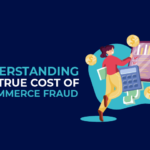Friendly fraud has always presented a looming threat to merchants.
With standard fraud becoming more difficult to perform, fraudsters are turning to new fraud practices. And friendly fraud is a rapidly occurring phenomenon.
Friendly fraud is now reportedly the #1 fraud attack source affecting merchants. In fact, 80% of consumers report filing chargeback claims merely out of convenience.
This means merchants must take friendly fraud and illegitimate chargeback claims more seriously than ever.
In this article, we explain how friendly fraud is evolving and how merchants can adapt to protect themselves against illegitimate chargeback claims.
What is Friendly Fraud?
Friendly Fraud occurs when a customer files an invalid or illegitimate chargeback request with their credit card company.
Chargebacks were originally meant to protect cardholders from fraudulent activity on their account. If someone steals a credit card and uses it against the cardholder’s will, the cardholder can contact the credit card company and demand a refund from the merchant.
But, more often chargebacks are instead being misused for client convenience, hurting the merchant who believed a legitimate order was fulfilled.
Customers sometimes file chargeback claims because they misunderstood their credit card statement, decided to return the goods after the allowed returning period ended, or are performing deliberate chargeback abuse (a practice called cyber-shoplifting).
Whatever the reason, these chargeback claims can cost a pretty penny for the merchant – the cost of a successful chargeback claim often costs the merchant double the original transaction amount.
How is Friendly Fraud different today?
Customers are expecting eCommerce site to offer more streamlined checkout options, such as One Click checkout models that put less friction between the customer and their purchase or allow Buy Now, Pay Later purchases, which make it easier for the customers to complete a purchase they would otherwise may have been less likely to consider at that time.
While such new checkout and payment options, improves the online buying experience and making it easier for customers to say ‘Yes’ and quickly complete the purchase of to a product or service, the faster process may lead the cardholder to perform orders without considering it properly or it may stimulate cases of impulse buy, resulting in higher chances the cardholder may end up regretting it and consequentl
Furthermore, as it is relatively easy for customers to dispute charges with their bank, there is less reason for them to contact the merchant if they wish to cancel their order. Thus, the merchant does not get the chance to try to resolve the matter as a refund or replacement and instead has to face the chargeback.
Because it is so easy to dispute a charge on your credit card, a customer who has successfully refuted a charge is nine times as likely to do it again.
This demonstrates some of the inefficiencies of the chargeback system. Furthermore, it is also relatively outdated as it was designed long before e-commerce payment methods like Buy Now Pay Later or One Click existed.
While fraud is changing and new methods such as friendly fraud are emerging, the chargeback system has not caught up fast enough.
So, merchants must take additional steps to fight friendly fraud within the confines of this outdated chargeback system.
How can merchants fight friendly fraud?
Create additional layers of protection
Collecting a broad host of data points on customers’ transaction-related interactions, including the post-checkout phase, equips merchants with an additional layer of protection.
Data like website visits, identification verifications, and interaction trails should be tracked in order to provide indications that a customer’s dispute was filed in bad faith.
These additional layers of protection are essential in distinguishing between illegitimate and legitimate chargeback claims.
This can save merchants time because they do not need to dispute legitimate chargeback claims, and can simplify the dispute process when applicable. Merchants must be able to file evidence available to them at the click of a button.
Chargebacks may also be issued without warning, thus merchants must keep a close eye on their business bank accounts to ensure that funds are not being withdrawn and if they spot such activity, promptly respond and dispute it when based on illegitimate claims.
Be prepared for illegitimate chargeback claims
Often, merchants lose money on chargeback claims because they do not possess the correct information required to effectively dispute them.
If merchants do not dispute the claim, not only they are responsible for paying a refund to the customer and a hefty chargeback fee, but they may also potentially risk being blocked from accepting payments online, if chargeback rates filed against them exceed acceptable trasholds.
In order to successfully dispute a chargeback, a merchant must gather enough evidence for a card issuer to reverse their decision.
Concrete evidence like sales/delivery receipts, a copy of your returns policy, or direct communication with the customer can all help to overturn an illegitimately issued chargeback.
Of course, these chargeback processes can consume valuable labor hours. This runs the risk of further cutting into a merchant’s bottom line.
Make use of fraud prevention solutions
In order to minimize the exposure to these threats, merchants should consider deploying extra layers of protection and the collection of evidence against chargeback claims to fraud prevention solutions. They may also outsource the cumbersome management of the dispute process.
Without monopolizing expensive manpower, tools like FUGU create additional layers of protection and prepare merchants to effectively fight illegitimate chargeback claims.
Merchants can also choose to hand the task to FUGU altogether and benefit from an end-to-end solution. This includes an optional Chargeback Guarantee offering to cover any potential chargebacks lost.




